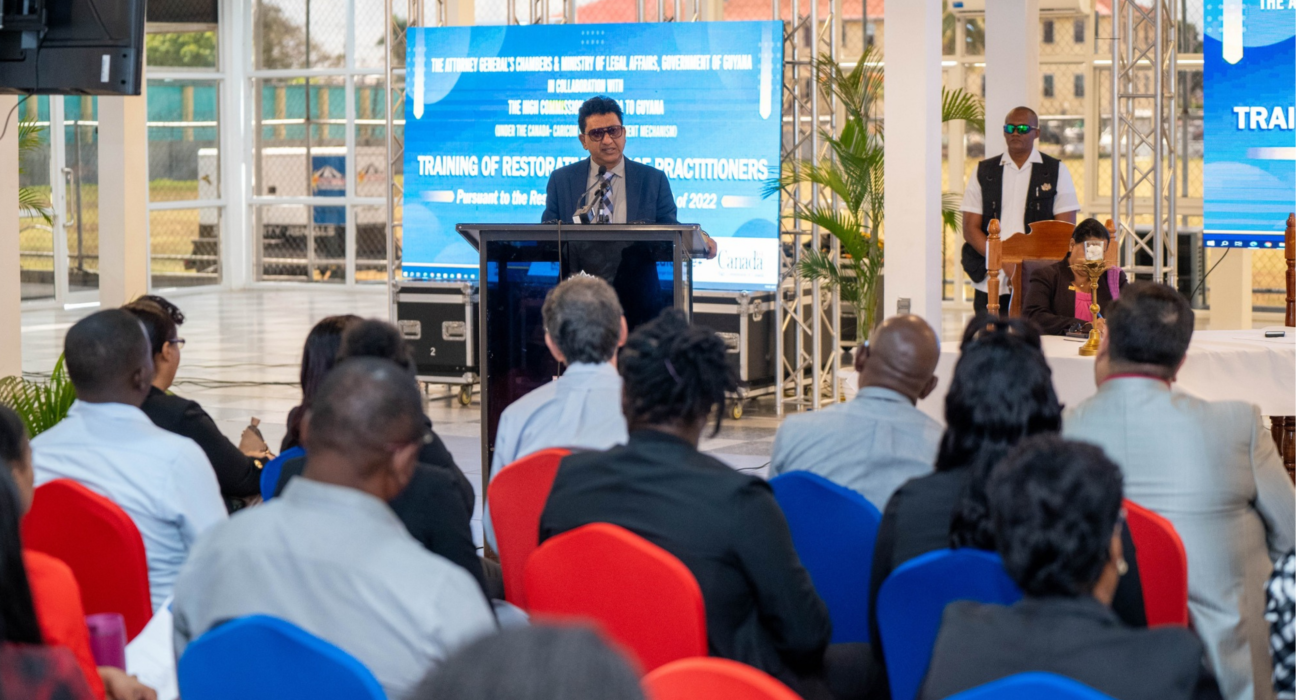By Josiah Williams
Over 20 Guyanese are undergoing training to become Restorative Justice Practitioners, aiming to transform the justice system and alleviate pressures on the criminal justice system.
The training, a collaboration between the Attorney General Chambers, the Ministry of Legal Affairs, and the Canadian High Commission, seeks to integrate restorative justice into the judicial system.
Attorney General Anil Nandlall emphasizes the potential of restorative justice to significantly reduce the workload of magistrates if fully incorporated.
Nandlall reveals that various community leaders, including Toshaos, religious figures, and teachers, have already undergone training.
Even if not integrated into the judicial system, these individuals will play vital roles at the community level.
The two-week training equips practitioners with skills to engage victims, perpetrators, and community leaders in restorative justice processes, aiming to find resolutions without resorting to court proceedings.
Acting Chancellor of the Judiciary, Justice Yonette Cummings-Edwards, stresses the importance of the training, urging participants to take their responsibilities seriously as they will contribute significantly to Guyana’s justice system.
Restorative justice is pursued to address several issues, including prison overpopulation, victim support, reduction of recidivism, and alleviation of costs for the judiciary and police.
It involves consultation between victims, perpetrators, and community members, focusing on resolution rather than imprisonment for non-violent crimes.
The initiative reflects a broader effort to enhance justice delivery, promote community involvement, and address systemic challenges within the legal system.

